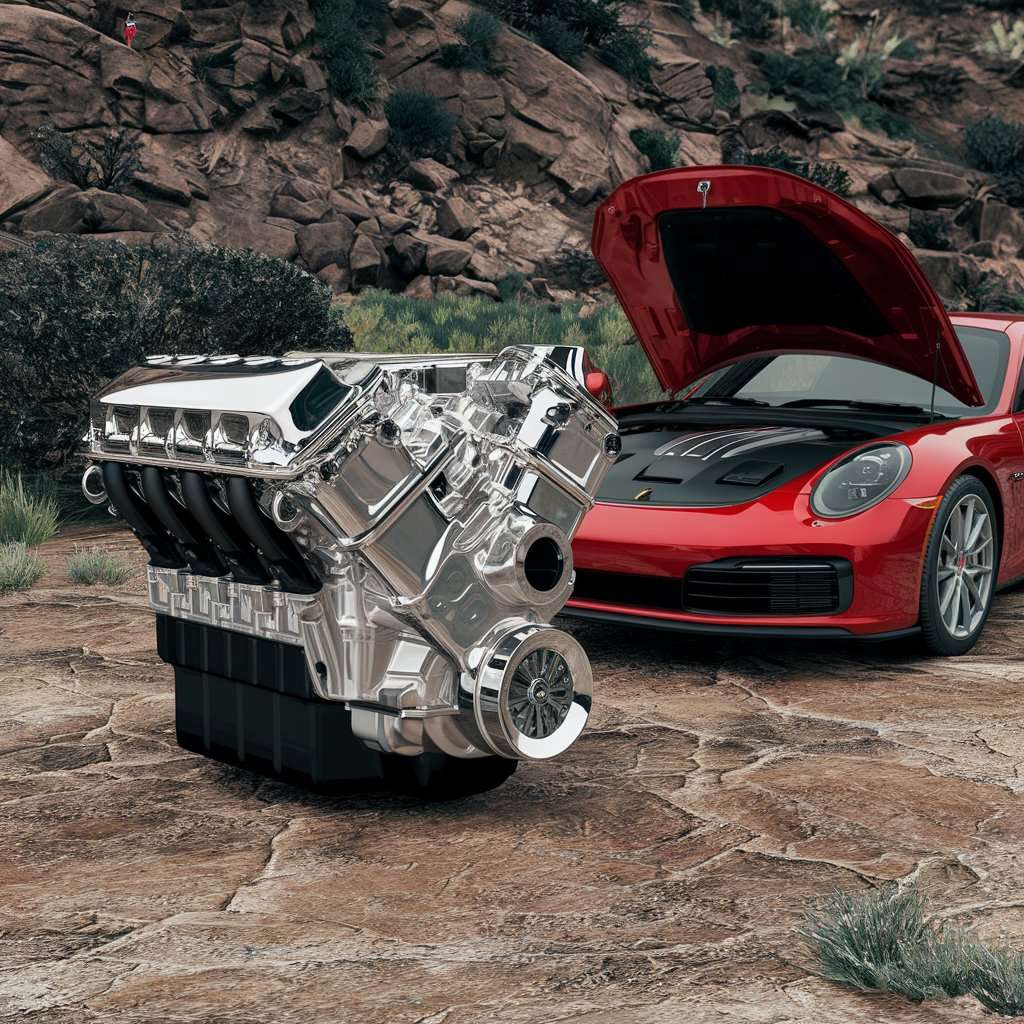
Lots of things have to be considered when purchasing something, and when it comes to engine blocks, you can expect a lot. This is why you will have to look at these factors when going to contact an engine block supplier. In this way, you will realize how crucial these things are. Have a look at them.
The stuff used to make an engine block is important. It affects how well the engine works, how long it lasts, and how heavy it is. Cast iron is a strong and long-lasting material for engine blocks. It's good for powerful engines. But cast iron blocks can be heavy, which might make the car harder to handle and use more gas.
Aluminum is lighter than cast iron. It can help the car go faster and use less gas. Although aluminum blocks can break more easily than cast iron, they've gotten stronger. Steel is also used for engine blocks. It's strong but not as heavy as cast iron. Steel blocks are often used in racing, where they need to be very strong and perform well.
The size of an engine's cylinders, specifically the bore and stroke, directly determines its displacement. Displacement refers to the total volume of the cylinders, which in turn influences the engine's power output and torque. A larger displacement engine generally produces more power and torque, allowing it to accelerate faster and tow heavier loads. However, larger engines often come with trade-offs, such as reduced fuel efficiency and increased weight.
The bore represents the diameter of the cylinder, while the stroke is the distance the piston travels within the cylinder. A larger bore or stroke increases the displacement, leading to a larger engine with greater power and torque. Conversely, a smaller bore or stroke results in a smaller displacement engine with reduced power output.
The ideal combination of bore and stroke depends on the desired engine characteristics and performance goals. For example, a larger displacement engine might be preferred in applications that require high power and torque, such as towing heavy loads or racing. On the other hand, a smaller displacement engine might be more suitable for fuel efficiency and lighter-weight vehicles.
Ultimately, the choice of bore and stroke is a critical factor in engine design and directly influences the engine's performance and suitability for specific applications.
Thicker block walls offer several benefits for an engine's performance and reliability. By increasing the thickness of the walls, the engine becomes more resistant to warping and cracking, especially in hot and high-pressure conditions. This stronger structure helps the engine last longer. However, thicker walls also make the engine heavier, which can affect how the car handles, uses gas and performs overall. While the extra weight can make the engine feel more stable and sturdy, it might also slow down the car and make it use more gas.
Whether to use thicker block walls depends on what you want the engine to do and how important strength, durability, and weight are to you. If you need a very strong and long-lasting engine, thicker walls might be a good choice. But if you're more concerned with fuel efficiency and how the car drives, you might consider using thinner walls.
The cylinder head is a critical component of an engine, responsible for housing the valves, spark plugs, and combustion chambers. These chambers are where the fuel-air mixture is ignited, initiating the power stroke that drives the engine. A well-designed cylinder head can significantly enhance an engine's performance and efficiency by optimizing the combustion process. This can lead to improved fuel economy, reduced emissions, and increased power output.
In addition to its role in combustion, the cylinder head is crucial for engine cooling. It contains passages that allow coolant to circulate and absorb excess heat, preventing the engine from overheating. Factors such as the number and arrangement of valves, the shape of the combustion chamber, and the design of the cooling system all contribute to the overall performance and efficiency of the engine. A cylinder head that effectively manages these elements can result in a more powerful, reliable, and environmentally friendly engine.
The weight of the engine block significantly impacts a vehicle's performance in several key areas. A heavier engine can negatively affect acceleration, braking, and overall responsiveness due to the increased mass that needs to be moved. Additionally, heavier engines require more power to overcome their own weight, leading to increased fuel consumption. This is particularly detrimental in applications where fuel efficiency is a primary concern.
In contrast, lighter engine blocks offer several advantages. By reducing the weight of the engine, vehicle handling and acceleration can be improved. Lighter engines also require less power to move, resulting in increased fuel efficiency. This is especially beneficial in applications where weight reduction is a priority, such as sports cars and fuel-efficient vehicles. Lighter engine blocks can contribute to better performance, improved fuel economy, and enhanced overall driving experience.
Lighter materials like aluminum can be used to construct engine blocks, reducing their overall weight without compromising performance. However, it is essential to balance weight reduction with other factors like strength and durability to ensure the engine's reliability and longevity.
The cost of engine blocks can vary significantly depending on several factors, including the materials used, the design complexity, and the brand or manufacturer. Engine blocks made from higher-quality materials or with advanced features, such as those designed for high-performance applications, tend to be more expensive. Additionally, well-known and reputable brands may command higher prices due to their reputation for quality and reliability.
It is essential to consider your budget when selecting an engine block to ensure that you choose a product that meets your needs without exceeding your financial constraints. By carefully evaluating the cost-benefit ratio of different options, you can make an informed decision that aligns with your budget and performance requirements.